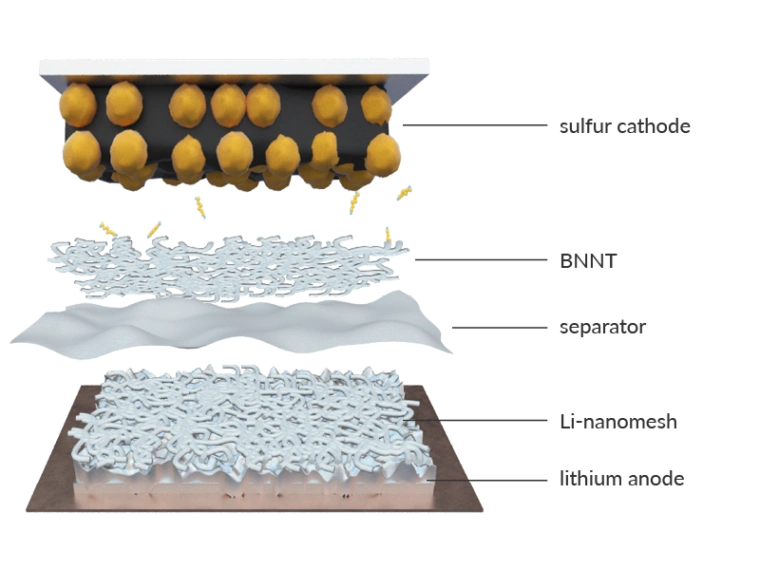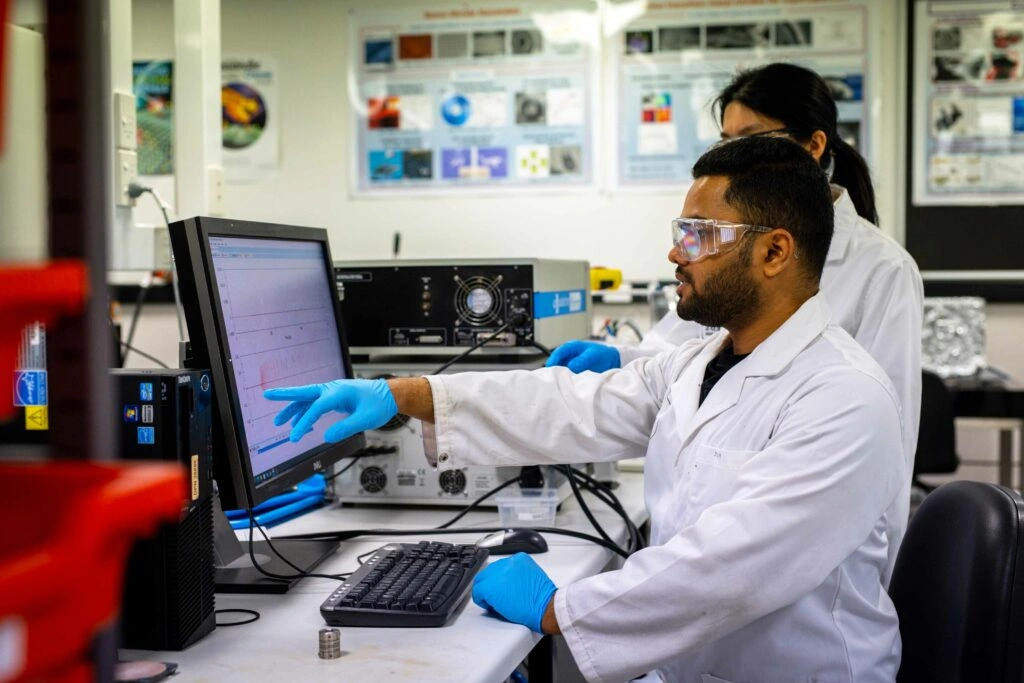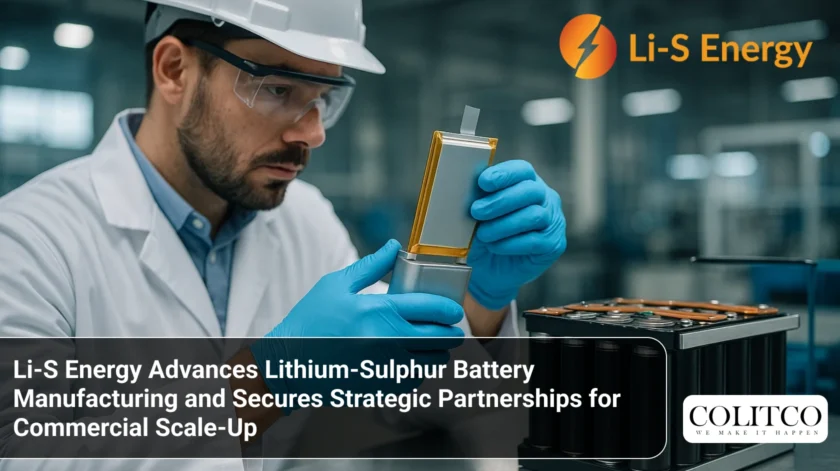Li-S Energy Limited (ASX: LIS) released its 2025 annual report detailing significant advances in its lithium-sulphur and lithium-metal battery programs. The company highlighted strong progress in scaling manufacturing and forging strategic partnerships across key sectors including aviation, defence, and unmanned systems. The report underscores Li-S Energy’s transition from research to engineering-led production and commercial engagement.

Battery Manufacturing Expansion
In 2025, Li-S Energy successfully commissioned its Phase 3 production facility in Geelong, Australia. The Phase 3 line produces 10Ah and 20Ah lithium-sulphur pouch cells using proprietary semi-solid-state chemistry. The facility features over 55 specialised machines, a 770 cubic-metre dry room operating at -55°C dew point, and argon-filled enclosures to maintain strict environmental controls. The company also installed a Phase 3S line for smaller format cells aimed at defence and security markets, expanding its product range.
A milestone in lithium metal foil production also occurred with the successful installation of a lithium foil extruder. This facility produced Australia’s first 100-micron lithium metal foils, marking a critical step towards domestic supply independence. The foil production line benefits from a $1.7 million Industry Growth Program grant and will eventually produce coated foils and laminates for battery applications. Li-S Energy aims to address quality, cost, and supply issues common with imported lithium foils.
Energy Density and Performance Achievements
Li-S Energy reported achieving an energy density of 456 Wh/kg in commercial-sized 20Ah lithium-sulphur cells after formation cycling. This performance places the company’s cells among the highest energy density lithium-sulphur batteries on the market. The company validated its technology with a successful fixed-wing drone flight lasting over 30 minutes using a battery pack composed of 12 lithium-sulphur cells. Approximately 90% of the pack’s energy remained after the flight, confirming efficiency and durability for practical applications.
The company continues to refine its use of boron nitride nanomaterials within the cells to enhance cycle life and operational stability. Its proprietary lithium extrusion and lamination techniques will further accelerate commercialisation of this unique nanomaterial IP. Li-S Energy also developed an intelligent Battery Management System (BMS) custom-made for lithium-sulphur and lithium-metal chemistries. The BMS monitors cell performance and optimises battery function through AI-based algorithms, demonstrated in multi-cell packs for drones.

Boron Nitride Nanotubes (BNNTs)
Strategic Partnerships Foster Market Integration
Li-S Energy expanded its partnership network in 2025, targeting advanced applications in defence, aviation, and unmanned platforms. The company secured a collaboration with Kea Aerospace for high-altitude, solar-electric drones designed for months-long flights, placing Li-S Energy at the forefront of emerging high-altitude pseudo satellite markets. It also partnered with a major defence prime contractor to supply lithium-sulphur cells for soldier-worn equipment and unmanned systems, supporting future procurement pathways.
Further commercial progress occurred under the Emerging Aviation Technology Partnership (EATP) grant, with projects developing extended-endurance solar-electric drones. The company delivered battery packs integrating its BMS for these drones, advancing towards flight trials in 2026. Li-S Energy’s presence at international trade shows and defence events has increased visibility and pipeline opportunities, helping the company gather valuable end-user feedback.
Commercialisation and Scale-Up Strategy
The company outlined a five-phase commercialisation strategy progressing from pilot production to large-scale manufacturing. Phase 3 involves production and engineering development at its Geelong facility to deliver sample cells for partner testing. Phase 4 focuses on scaling manufacturing to a 1 GWh commercial production plant. Li-S Energy is evaluating funding models including government support, licensing, joint ventures, and project financing for this phase. Phase 5 envisions licensing and materials supply models as the company expands its market reach.
Li-S Energy expects sales growth from multiple revenue streams. These include collaborative programs integrating battery cells and packs in high-value end uses, sales of lithium foils and laminates, nanomaterial supply to other manufacturers, and licensing of core intellectual property. The new lithium foil production line will enable export opportunities targeting global demand projected to reach US$51 billion by 2032.

Li-S Energy’s battery testing facility
Intellectual Property Management
Li-S Energy reinforced its intellectual property protections by filing multiple Patent Cooperation Treaty applications during 2025. These cover novel battery materials, manufacturing processes, and system integrations. The company actively manages trade secrets with a structured documentation system. It completed cybersecurity assessments to safeguard its IP and operational data against threats. The company recognises intellectual property as a core asset essential to long-term value creation.
Financial and Shareholder Position
At 30 June 2025, Li-S Energy held $18.9 million in cash and financial assets, ensuring a stable balance sheet to continue development amid challenging economic conditions. The company benefits from matched federal government grants, including the EATP, Trailblazer Universities Program, and Industry Growth Program. One founding shareholder, PPK Group Limited, reduced its holding to 39.24%, increasing the company’s free float and potential market liquidity.
Also Read: Matthew Holcz Takes the Helm as Rio Tinto’s Global Iron Ore Chief in Major Leadership Realignment
Leadership and Governance
Li-S Energy’s leadership team includes Chairman Ben Spincer and CEO Dr Lee Finniear. The company’s board features directors with extensive experience across technology commercialisation, legal, and energy sectors. The management team oversees operations, technology development, finance, and strategic advisory functions.
Outlook
Li-S Energy intends to continue refining its lithium-sulphur battery technology while scaling manufacturing capabilities. The company plans to progress partner collaborations into binding offtake agreements and advance plans for larger-scale facilities. It also aims to expand export markets for lithium metal foils and optimised battery materials. Given growing global demand for advanced energy storage, Li-S Energy positions itself to contribute to sectors including electric aviation, defence, and drones.
The company remains engaged with both federal and state governments who support sovereign battery manufacturing capabilities. Li-S Energy’s Geelong facility stands as a critical manufacturing asset and a showcase for Australian innovation in next-generation batteries. The company will provide ongoing updates on technological, commercial, and operational developments as it pursues its path toward commercialisation and scale.












